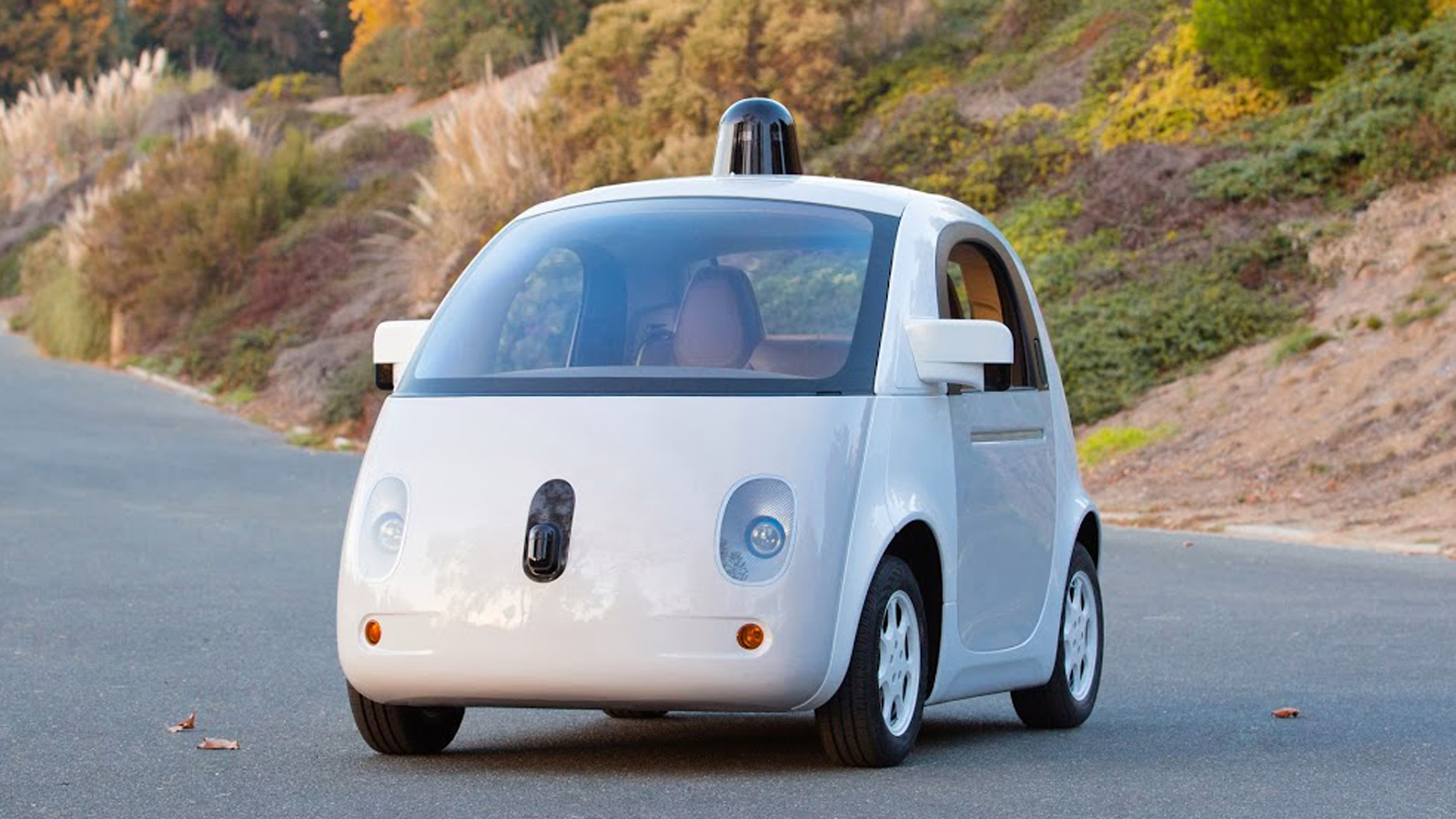Google's self-driving cars might have airbags... on the outside
What's next? And internal bumper?

While self-driving car tech continues to move forward at a rapid rate, not everyone is convinced that handing over the keys to robot drivers is 100% safe. Google wants to assuage your fears with its latest innovation - external airbags.
Yes, you read that correctly. The idea is that should you jump out in front of an autonomous vehicle - or should it ram straight into you - the airbag will cushion the blow and leave both car and pedestrian unharmed.
Standard airbags would probably fling you to the floor, which is why Google wants to use a "visco-elastic material" - which is a little bit like a memory foam mattress - for a more gentle impact.
Robot miles on the clock
The patent (via Quartz) was awarded to Google this week, but - as always with patents - it might never see the light of day. Even if the idea is eventually abandoned, it shows Google is thinking long and hard about how these cars are going to work when they finally go on sale.
Google and other companies have now logged hundreds of thousands of miles while testing their autonomous vehicles and so far there have been very few reports of accidents (one incident was reportedly due to human error rather than a mistake on the part of the car).
That said, while self-driving motors are now very comfortable on highways in good weather, it's in unexpected, unfamiliar and emergency situations where they still need to prove their reliability.
Get daily insight, inspiration and deals in your inbox
Sign up for breaking news, reviews, opinion, top tech deals, and more.

Dave is a freelance tech journalist who has been writing about gadgets, apps and the web for more than two decades. Based out of Stockport, England, on TechRadar you'll find him covering news, features and reviews, particularly for phones, tablets and wearables. Working to ensure our breaking news coverage is the best in the business over weekends, David also has bylines at Gizmodo, T3, PopSci and a few other places besides, as well as being many years editing the likes of PC Explorer and The Hardware Handbook.